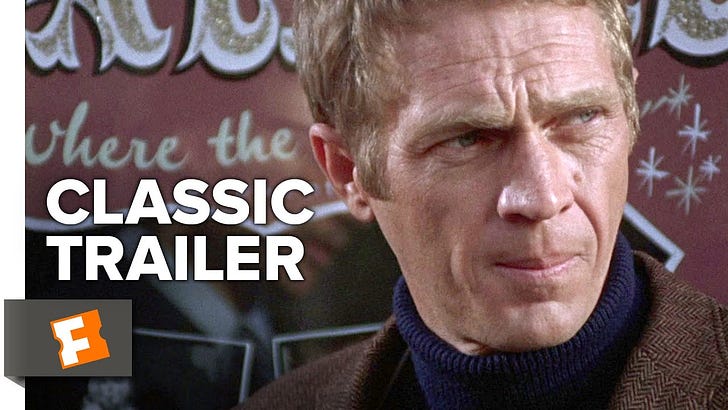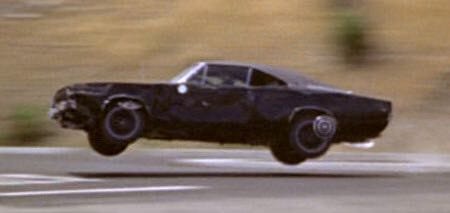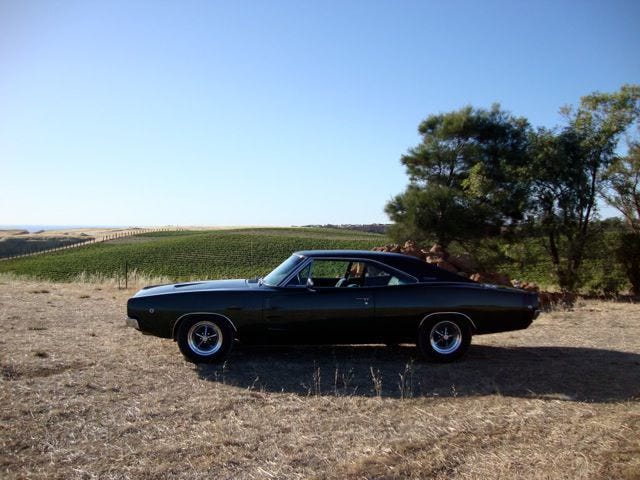Come in the middle? Here’re links to ➡️ Chapter One, Chapter 2, Chapter 3, Chapter 4, Chapter 5, Chapter 6, Chapter 7, Chapter 8, Chapter 9 , Chapter 10, Chapter 11, Chapter 12, Chapter 13, Chapter 14 , Chapter 15 , Chapter 16, Chapter 17, Chapter 18, Chapter 19, Chapter 20, Chapter 21, Chapter 22, Chapter 23, Chapter 24, Chapter 25 , Chapter 26, Chapter 27, Chapter 28
“So Who Owns Chrysler Now?” Time Magazine asked. Fiat owns Chrysler, or at least 35 percent of it, when that article was published, with an option to raise its share to 55 percent.
Detroit rethinks. The merger of Chrysler and Fiat occurs in June, the bridal month.
Mary rethinks: An Italian owns the Plymouth?
In the Grimm Brothers’ story, “The Wedding and the Fox,” the brothers include two stories to tell the tale. This choice may have been the brothers’ academic-like reporting of the tales they “collected,” but I’m struck by the choice of two endings, as if both were possible, as if we had a choice. In the first, old Mr. Fox with nine tails plays dead because he believed that his wife was not faithful to him and wished to put her to the test. In the second story, the old fox is dead.
D. and I would’ve been married twenty-five years in September. “Which would you rather have?” I once asked D. “A Plymouth or an armchair, a comfortable, elegant armchair.” “That depends,” D. said, “on whether I needed to go to the grocery store or I was having the groceries brought in.” I don’t know if he knows that I used to think of him as a Plymouth: reliable, steady, made in America. I used to think of myself as the armchair.
During the time of separation, I’ve had to think of D. as two stories: dead to me or playing dead.
You may think me a fool. Maimonides says, Fools die for want of heart.
In the first Grimm story, many suitors come but Mrs. Fox will only entertain the fox,
who had nine tails like old Mr. Fox. But just as the wedding was going to be solemnized, old Mr. Fox stirred under the bench, and cudgeled all the rabble, and drove them and Mrs. Fox out of the house.
But I think she has been true to him. What could old Mr. Fox been thinking?
Shortly before my stay in Missouri was to end, a pit bull attacked me. The guy across the street owned the dog but was house-bound due to his house arrest and the ankle bracelet that kept him there when the dog charged me as I got out of my 1998 used Ford Contour to enter the pit where I lived. A storm door saved me when I managed to get it between me and my attacker. Inside I stood shaking, once I’d gotten my front door closed, and I thought: still alive after all these years and despite these facts: No separation agreement, not even close then, still in love with the man who wrecked my life and no path before me to remaking it.
But alive.
All this makes me think of the Dodge Charger R/T 440 Magnum, maybe the muscle car of my time, meaning movie-time, meaning Bullitt: Steve McQueen is detective Frank Bullitt, in case you don’t remember. Bullitt in that dark green Ford GT Mustang 390 Fastback plays a tough cop in the car chase of all car chases. McQueen chases over the streets of San Francisco and the outlying highway the black Dodge Charger.
The Dodge Charger is D.’s dream car. I went to New York to have lunch with my son Ben and learned he’d bought a Dodge Charger R/T 440 Magnum. It’s in Australia.
My son does not approve of the door I’ve opened to D.—the dinner dates and movies, the talking on the phone. “What are you doing?” he asks.
Ben thinks of D. as a pit bull. He thinks of my metaphorical storm door as inappropriately opened and my separation agreement as the assurance that I will be safe. After the pit bull attacked—many of these dogs in Oz so my son knows them well—“Anyone could outrun you,” Ben said. “And that dog can outrun anyone.” Ben suggested first that I move (with twenty-two days left on my lease?) and then that I park the car as near the storm door as I could— and I did.
Now, I’ve parked my metaphorical car as near the storm door as I could.
Perhaps D. is playing dead. Perhaps once the chase had begun—as indeed it has—he will pursue the way McQueen relentlessly pursues the truth in Bullitt because ultimately McQueen’s chase is not for the Charger but for the real story: He makes sure the dead Ross, whom he’s been protecting, is thought to be alive: in a sense playing dead when he in fact is dead? so that Frank can get to the story in spite of Senator Chalmers, so that he can pursue the other story.
What do I know?
Nothing is what it seems. The Spy Museum near my condo in the Penn Quarter D.C. puts this line on signs in the Metro.
In a slim little book entitled The Middle Passage, the Jungian analyst James Hollis advises: “What is not conscious from our past will infiltrate our present and determine our future. The degree to which we felt nurtured directly affects our ability to nurture others. The degree to which we feel empowered directly affects our ability to lead our own lives. The degree to which we can risk relationship . . .” depends.
D., when I met him, seduced me with a 1980 Fiat Spider 2000, otherwise known between us as “The Little Jewel.” While I stood in the cold, waiting for the bus that would take me to the Metro that would take me to the job where I had met D., he would sometimes drive by and swoop me up: me in my overstuffed quilted red coat, my three bags—briefcase, purse and gym bag—and give me a ride to the Metro. He went out of his way to do this, knew when I would be standing there, knew how cold it was with two kids in elementary school and barely enough child support and salary to support them.
And so I married him: the first ending of my story. But why I married him lies inside.
How do I explain?
When I’d left my children’s father, my daughter Sarah, six years old, said, “Can I tell you about my dream, Mommy? I dreamed of a present. It was big but, when I opened it, I found another box and inside that another one. I couldn’t find the gift no matter how many I opened.” We were driving with my father on a mundane errand. I can’t now remember what it was—perhaps to get a toaster after the children and I moved from the giant of a house in Potomac that their father kept to the tiny rented house in Garrett Park Estates.
I think now again of Sarah who long ago sat on my lap and talked of opening boxes and knew with the wisdom of a child that it was not the gift that mattered.
It was not the house that mattered.
When I married D., I knew that the heart—not the mind—is the seat of the brain. I could see his heart before he disappeared.
Perhaps the Grimm Brothers’ second story’s ending of “The Wedding of Mrs. Fox” might as easily be the ending of the first story: and there was much rejoicing and dancing; and if they have not left off still, they are still dancing.
Behind Chrysler is Fiat: Detroit rethinks.
Mary rethinks: Perhaps the Plymouth is a Fiat.
Grateful acknowledgment is made to the following for permission to reprint previously published material in chapter 29: James Hollis: Excerpt from The Middle Passage: From Misery to Meaning in Midlife, Inner City Books, copyright 1993. Reprinted with permission of Daryl Sharp, publisher, Inner City Books.
Coming next: Chapter 30, “The Wave” Table of Contents
Love,
All on my site, except for parts of Write It! are free.
Either way, I’ll send loads of love back to you. xo ~Mary







Mary,
What struck me about this chapter was how interactive it was, how you were able to cross-reference all the different parts to give each of them and the entire chapter increased resonance. That's a hard thing for a writer to do, and you did it so well.
You made the various cars personalities as well as stories in themselves.
Also, I thought of the Stephen King book Cujo which pits (pun alert) a vicious rabid dog against someone sheltering in a car.
Everything connects. What seem so diverse from one another come together. Placing The Wedding and the Fox next to The Middle Passage can instruct. The part about Sarah sitting on your lap, incredibly moving. In the middle of an argument between my father and mother, I would have been about Sarah's age, this relative who had to intervene sat me on his lap and asked me what I wanted. By then, I had been a veteran at witnessing fighting. And I said, I want to be a family. He gave me a big clap as if I had touched gold but kids too, can discover the "real" of any situation.